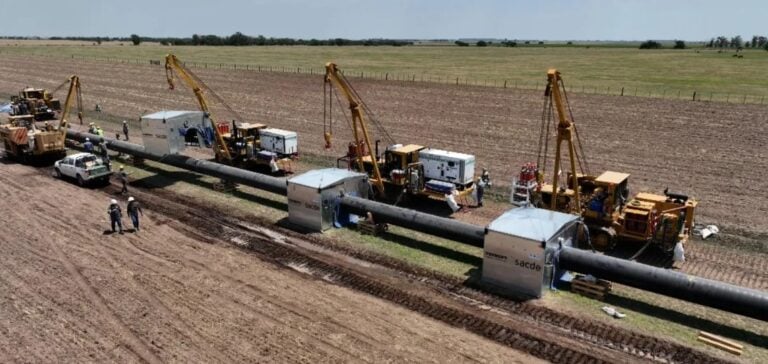After nearly a decade of absence, Petrobras, the Brazilian state-run oil company, is planning a strategic return to Argentina. This decision follows a series of recent developments, including the signing of a memorandum of understanding (MOU) between the two countries to strengthen gas trade. The Vaca Muerta shale field, one of the largest shale reserves in the world, stands out as a key asset in this strategy.
On November 18, a memorandum of understanding was signed between Argentina and Brazil to gradually increase the export of Argentine natural gas to Brazil, reaching 30 million cubic meters per day (m³/d) by 2030. Initial deliveries would begin in 2025 with 2 million m³/d. This volume would be transported via existing infrastructure or new pipelines, with options passing through Bolivia, Paraguay, or Uruguay.
A strategic partnership with YPF
As part of this return, Petrobras is already collaborating with YPF, the Argentine state oil company, to explore joint opportunities in the Neuquén Basin, where Vaca Muerta is located. In September, the two companies signed an agreement to evaluate projects over three years, initially focusing on the Río Neuquén field. This site, operated by YPF with Petrobras as a partner, currently produces 5.2 million m³/d of gas and 2,100 barrels of oil per day.
This collaboration marks a turning point for Petrobras, which sold most of its assets in Argentina in 2015-2016 to refocus on its domestic market. At the time, Argentina’s declining energy production had motivated this withdrawal. Since then, the development of Vaca Muerta has enabled the country to regain strength, with oil and gas production significantly increasing.
A favorable regional context
The rise of Vaca Muerta coincides with Brazil’s growing need to diversify its energy supply sources. Long dependent on Bolivia for its gas imports, Brazil is now seeking more stable and competitive alternatives. Vaca Muerta appears as a practical and strategic solution, offering competitive production costs compared to Brazil’s offshore fields.
At the same time, Argentina is working to improve its transportation infrastructure to meet growing demand. A series of bidirectional pipelines and new liquefied natural gas (LNG) export capacity projects are underway, including a floating terminal supported by Pan American Energy and Golar LNG, planned for 2027.
Diplomatic and energy perspectives
Beyond economic stakes, this partnership fits into a strategic diplomatic dynamic to strengthen bilateral relations between Brazil and Argentina. Brazil’s ambassador to Argentina, Julio Glinternick Bitelli, highlighted the importance of this agreement for diversifying Brazil’s energy supplies while consolidating regional cooperation.
The production potential of Vaca Muerta could transform Argentina into a key energy supplier for the region. By 2030, oil production from the basin is expected to exceed 1 million barrels per day, while gas production could reach 250 million m³/d, according to PwC. Such an expansion is expected to generate an energy surplus of $30 billion, compared to the current deficit.
For Petrobras, a return to Argentina represents an opportunity not only to diversify but also to strengthen bilateral relations. This collaboration could also encourage other regional players to invest in joint energy projects, paving the way for greater energy integration in South America.






















